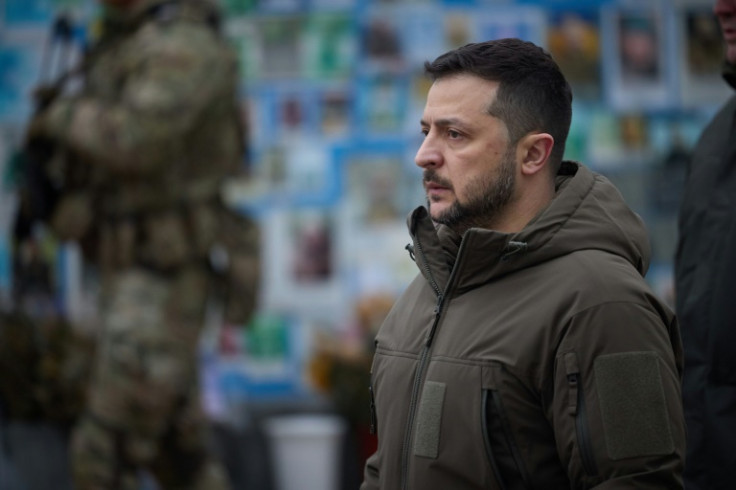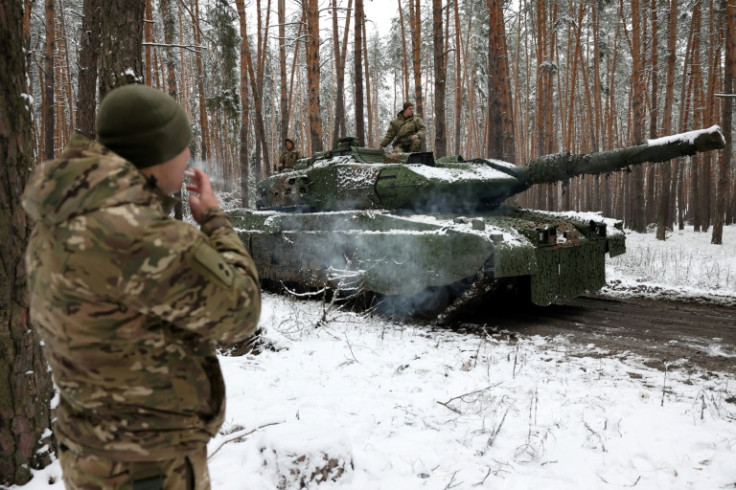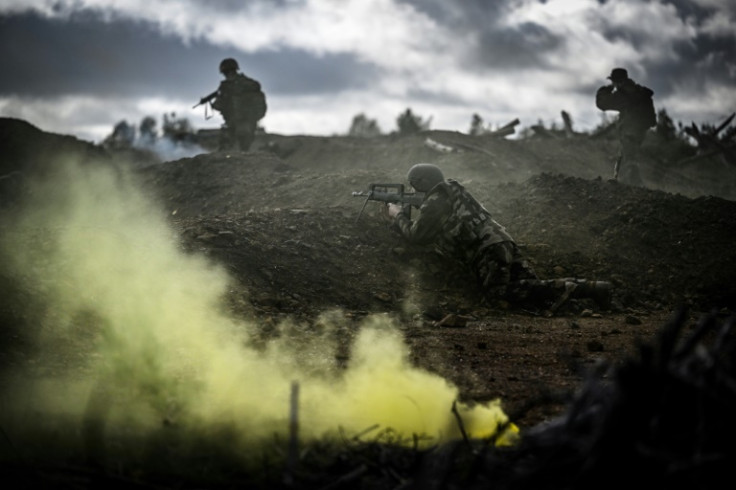Cracks In Western Support Pose New Challenge For Ukraine

Ukraine faces growing diplomatic headwinds after its summer counter-offensive against Russia's forces faltered, with aid from vital backers in the United States and EU being increasingly called into question.
The latest sign of tensions came when President Volodymyr Zelensky cancelled at the last minute a Tuesday video address to the US Congress, which he hoped would help unblock vital further billions in funding.
No reason was named publicly for the no-show.
In Europe, eyes were on Hungarian Prime Minister Viktor Orban, a staunch sceptic of EU backing for Ukraine's war effort.
While the bloc was looking to open membership talks with Kyiv and is proposing a 50-billion-euro ($54 billion) financial lifeline, Orban suggested dropping these matters from an upcoming Brussels summit.
French President Emmanuel Macron has invited Orban for dinner in Paris on Thursday, hoping to bring him around.
Hopes that Ukraine could win back occupied territory in its south and east from Russian President Vladimir Putin's forces were dashed in summer.
Western allies, who had supplied more and heavier weapon systems in the preceding months, now appear to be questioning how strongly to keep up their aid.
Ukrainian leaders insist they can make advances at the front if support keeps coming.
Kyiv can point to some recent military gains on the Black Sea, allowing it to successfully export cargoes of agricultural products.
"Even receiving continuing infusions from the West, Ukraine lacks manpower, where Russia doesn't have that problem," one senior European military officer at NATO told AFP.
Among Kyiv's soldiers sent for training with NATO troops, "these days there are older people, less experienced, who are coming forward."
"Now is the time to manage Zelensky, to reel him in from his somewhat die-hard position. No-one's saying it officially, but I think that's what's in the pipes," the NATO source added.
A French diplomatic source countered that Ukraine still has "a very low rate of mobilisation" among its population, while Russia's "statistics are being fiddled with".
While national morale may have been tested, Ukrainian troops at the front still appear determined to see the fight through.
And while the war is costly, "the Europeans won't cast Ukraine aside because they know if Putin takes Ukraine, it would be a very dangerous precedent" with risks for EU members like the Baltic states and Poland, said Tatiana Kastoueva-Jean of the French Institute for International Relations (IFRI).
That was backed up by the French diplomat.
"Backing Ukraine is about European and French security," the diplomat, asking not to be named, told a group of reporters.
Leaders must "counter the idea that one crisis pushes another aside," the diplomat added, in reference to fears in Ukraine that Israel's fight with Hamas militants could distract Europe.
"Everyone knows that it's a risky time, but I don't see any defeatism in Brussels or at NATO," the diplomatic source said -- while acknowledging that questions would inevitably be asked after two years of war.
Analyst Kastoueva-Jean said that while "every factor is working towards stasis" at the front, it was vital for European leaders to minimise dissent about their continuing support.
Staying the course is all the more important for Europe with US presidential elections in November 2024 where Donald Trump and his America-first programme have a real chance of returning to office.
Reassurance from outside was also needed, Kastoueva-Jean said, as "squabbling among the elites is showing up" in Kyiv, where the relationship between Zelensky and his military chief of staff Valery Zaluzhny has grown fraught.
"Could this be the end of national unity behind Zelensky, or is it just an interlude tied to the challenges at the front?" she asked.
French diplomats have been trying to convince allies that aid must be kept up as a signal to Putin that "he can't count on support wearing out" for Kyiv.
For Europe, that would mean accelerating the build-up of its defence industry and improving interoperability of equipment.
Kyiv's forces are currently using more than 200 different weapons systems pieced together from various sources, Ukraine's ambassador to NATO Natalia Galibarenko highlighted recently.



© Copyright AFP 2024. All rights reserved.





















